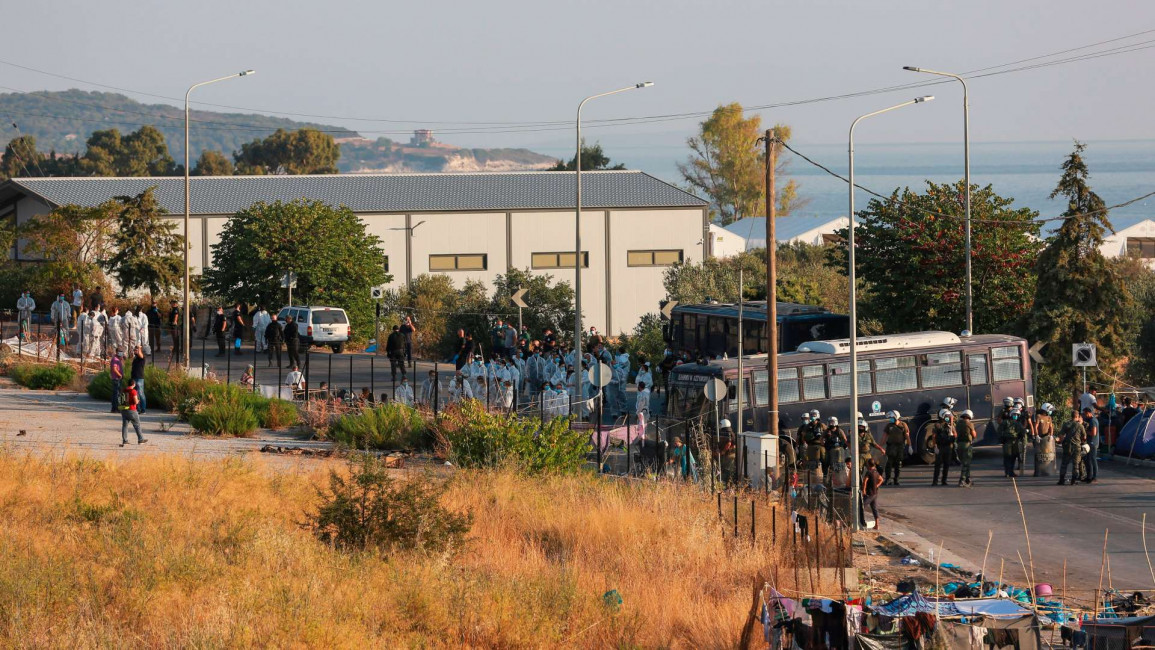Lesbos police begin operation to move homeless asylum seekers to new camp after devastating fire
Police on the Greek island of Lesbos on Thursday began an operation to rehouse thousands of homeless asylum seekers at a new site after their camp was destroyed by fire, an AFP journalist said.
At around 7am (0400 GMT), officers were waking the migrants and refugees in their tents to take them to the temporary camp that was hastily set up after the fire last week.
Desperate families, many with young children, have been living rough since the devastating fire - many without tents or even basic bedding.
Now, with only the sounds of children crying, the asylum seekers folded their blankets, picked up bags containing whatever belongings they had saved from the fire and dismantled their tents.
Women and children with bundles on their backs were seen gathering at a barricade police had set up on the road.
Doctors Without Borders (MSF), which opened an emergency clinic in the area, was barred from accessing the facility during the night, as rumours of the police operation spread, the group said early Thursday.
"A police operation is underway to take refugees to the new camp. This should not prevent medical aid," MSF said on Twitter.
Over 12,000 people including entire families with elderly and newborns were left homeless when Europe's largest camp for asylum seekers at Moria burned down on the night of September 8.
|
The new camp, set up near the island's port of Mytilene, has the capacity to house 5,000 people, Reuters reported.
Six young Afghans have been arrested in connection with the incident, with four of them brought before a Lesbos magistrate on Wednesday.
Thousands have been sleeping under tarpaulins or tents at roadsides and in the car parks of closed supermarkets.
The Greek migration ministry said Tuesday that around 1,200 had entered the new camp.
But many have refused to go, fearing they would be left waiting for months to have their requests for asylum processed and transferred to the Greek mainland or to another European country.
Read more: Moria camp tragedy is a wake-up call for Europe's failed migration policy
The UN refugee agency on Wednesday urged Greece to speed up asylum processes on Lesbos.
"The idea is not that people remain for ever on the island of Lesbos, but that processes are accelerated so that people can leave gradually and in an orderly way" to capital Athens or elsewhere on the mainland, the UN agency's chief in Greece Philippe Leclerc told reporters.
Greece's police minister Michalis Chrysochoidis this week said that "half" the migrants on Lesbos should be able to leave "by Christmas" and "the rest by Easter".
Follow us on Facebook, Twitter and Instagram to stay connected



